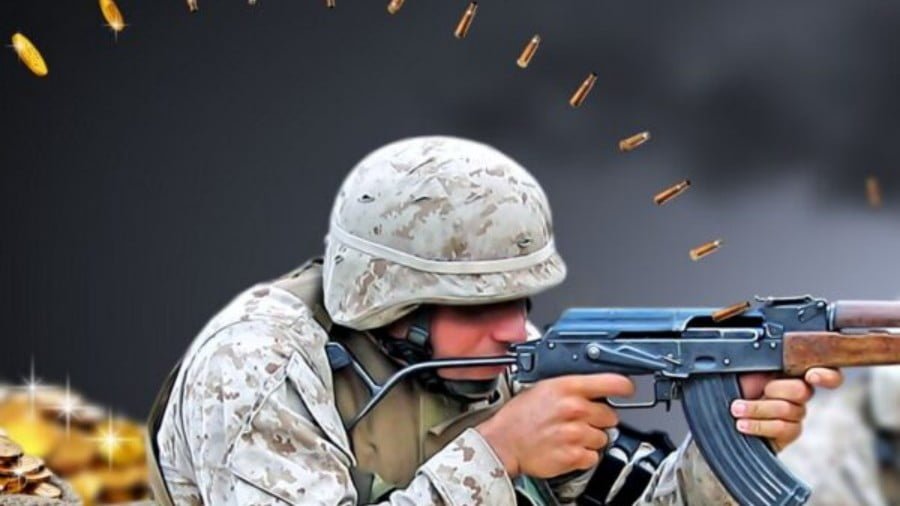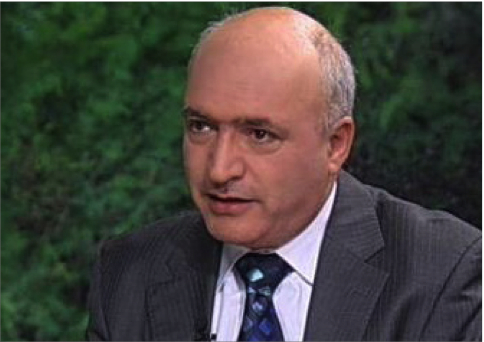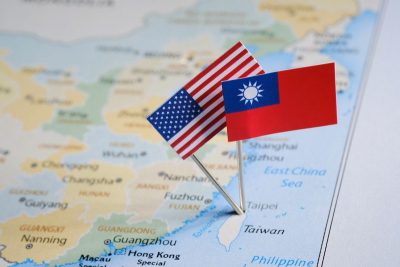As the Russian military operation in Ukraine approaches the one-year mark, Al-Ahed News sat down with Moscow’s envoy to Lebanon Alexander Rudakov.
According to the Russian ambassador, his country “is not at war with the Ukrainian people, but it is facing the entire NATO military machine led by the United States that is using the Ukrainians as fuel. Kiev has no authority to make any sovereign decisions.”
“The objectives of the Russian special military operation on Ukrainian soil have not changed. They primarily include protecting our Motherland, its sovereignty, and its territorial integrity, ensuring the security of the Russian people, including [those living] in the territory of Ukraine liberated from neo-Nazis, and the disarming and the de-Nazification of this country,” Rudakov explained.
“We are actively and rapidly developing our own economic countermeasures. We are taking the necessary measures to minimize damage and ensure the sustainable functioning of all sectors of the national economy. The import substitution policy, the accelerated development of private industry, and the strengthening of technological sovereignty are designed to neutralize the impact of sanctions and all restrictions.”
Below is the complete transcript of the interview:
It’s been almost one year since the start of the Russian military operation in Ukraine. What goals has Russia achieved so far? And what is your assessment of the progress of the operation?
The system of international relations is experiencing radical changes. The course and results of 2022 show the clear and categorical refusal of the Western world to deal with anyone on an equal footing as a fully sovereign partner. Rather, it deals with some countries as dependent entities, colonies, or as second-class countries. The West also openly commits aggressive and treacherous actions without the slightest regard for the interests of other countries.
NATO’s hostile steps towards Russia began well before February 2022, which eventually led to an escalation on the Ukrainian front.
The objectives of the Russian special military operation on Ukrainian soil have not changed. They primarily include protecting our Motherland, its sovereignty, and its territorial integrity, ensuring the security of the Russian people, including [those living] in the territory of Ukraine liberated from neo-Nazis, and the disarming and the de-Nazification of this country. We are moving steadily towards the completion of all difficult tasks.
Are the doors of dialogue with Kiev still open?
One of the main principles of Russia’s foreign policy is the need to resolve differences by political and diplomatic means.
We have always been and remain open to dialogue with Kiev, including a peaceful settlement of the Ukrainian crisis. Several rounds of these negotiations have already taken place in the spring of last year, which the Ukrainian side refused to continue, on the orders of Washington.
It is important to understand that Russia is not at war with the Ukrainian people, but it is facing the entire NATO military machine led by the United States that is using the Ukrainians as fuel. Kiev has no authority to make any sovereign decisions.
Thus, it is necessary, first of all, for Washington, the European capitals, and the Kiev puppet regime to realize the imperative of respecting Russia’s legitimate security interests in order to begin negotiations on a settlement in Ukraine.
There is nothing new in our position regarding this issue. We have always strived to create a system of equal and indivisible security for all. We consider attempts to enhance the security of a state by infringing on the interests of another state useless.
What are the methods adopted by Russia to withstand Western attacks through the media, politically, and economically?
In fact, a fierce hybrid war has been launched against Russia. Western countries are taking hostile measures towards us in the political, economic, and media sectors, in addition to providing military support to the neo-Nazis in Kiev.
Attempts to isolate Russia globally continue. In the pro-Western media, they are trying to discredit us and make false accusations about the world’s problems, such as the global food and energy crises. Unlawful penalties are being imposed unilaterally, and they use fraudulent and illegal methods to compete with us.
This is done with the aim of weakening or breaking Russia, but they will not be able to achieve their desired goals.
We were able to successfully prepare ourselves for sanctions. We are actively and rapidly developing our own economic countermeasures. We are also working hard to clarify and spread our positions aimed at promoting world peace, ensuring global security and stability, and establishing a fair, democratic system for relations between states. We are developing relationships with countries that share this vision and mission.
How does Moscow deal with the economic sanctions imposed on it in light of the war with Kiev? What is the impact of these sanctions on the Russian interior? And how does Moscow face this economic terrorism legally?
At the beginning, I would like to point out the correct formulation of the question: Western countries are currently practicing economic terrorism in its most obvious form.
The Europeans, whom we used to call “partners”, have completely lost their credibility. They are trying to strangle Russia economically. They arbitrarily set price ceilings for the purchase of Russian gas and oil, sabotage the infrastructure that guarantees supplies of hydrocarbons, and then unfoundedly accuse us of provoking the global food and energy crises, knowing that they themselves prevent the shipment of Russian grain and fertilizers to countries in need.
The policy of economic sanctions has long been practiced against Russia. In recent years, we have witnessed a new round of measures. However, it was fairly easy to predict, so we were able to prepare ourselves for it.
We take the necessary measures to minimize damage and ensure that all sectors of the national economy function sustainably. The import substitution policy, the accelerated development of private industry, and the strengthening of technological sovereignty are designed to neutralize the impact of sanctions and all other restrictions.
What is the role of Russia’s allies in strengthening its steadfastness in the face of the Western attack?
The true reasons for the war that a handful of Western countries launched against Russia are not a secret for much of the world.
We maintain reliable relations with many of our friends and allies in Asia, Africa, Latin America, and the Middle East, and with them we continue to develop political dialogue and bilateral trade and economic cooperation, as well as through various frameworks of international bodies.
Russia has long been a reliable trading partner and supplier of energy, food, and other goods and services. Due to the hostile course of the West towards Russia, our relations are currently being redirected to the markets of friendly countries, especially Asian ones.
We are successfully cooperating with member states of the Eurasian Economic Union, BRICS, and Shanghai Cooperation Organization to overcome emerging challenges.
In Lebanon, we have heard in the media about Russian offers in various fields to provide assistance to the government and the people. Can you provide an overview? And what was the government’s response to this?
Our Lebanese friends are well aware of Russia’s continuous readiness to lend a helping hand in difficult times.
Russian in-kind assistance is provided to Lebanon, including through United Nations humanitarian organizations. For example, last year 714.15 tons of Russian sunflower oil were distributed to Lebanese schools.
Every year, we offer 150 scholarships to Lebanese students who wish to receive free education in Russian universities.
Heeding the call of the Lebanese government, Russian President Vladimir Putin decided regarding the free supply of wheat and petroleum products. The technical logistics of transporting these products are currently being coordinated.
In addition, we are studying prospects for intensifying bilateral cooperation in a number of fields, including energy, medicine, and agriculture.
We are looking for other opportunities to support our Lebanese friends during this difficult time for their country. We always remain open to considering proposals for launching any mutually beneficial projects.
We are convinced that the early election of a Lebanese President and the subsequent formation of an effective and capable government will greatly contribute to the successful progress of all these initiatives.
Some Russian airlines are suffering from a fuel crisis in Lebanon. Care to comment?
One of the manifestations of Western economic terrorism, which we mentioned earlier, is the blatant intimidation of our partners. This is intended to get them to refuse to cooperate with us.
Companies operating in Lebanon specialized in ground maintenance of aircraft could not escape this fate, as under the threat of sanctions, they were prohibited from refueling Russian aircraft.
This, of course, creates some inconvenience and confusion. Considering this, the entire Russian economy has adapted to the pressure of continued sanctions, and in the best interests of our country, we are adopting effective methods to neutralize the damage caused by the restrictions on us and respond to them appropriately.
We are convinced that over time we will be able to restore Moscow-Beirut flights.
Does the Lebanese government’s acceptance of some of the sanctions imposed on Russia, at the West’s request, affect the Lebanese community in Russia?
Western countries, in their reckless attempts to inflict economic damage on Russia, create a whole host of human complexities that affect innocent people, often exacerbating the social and economic problems in these same countries imposing sanctions.
We regret that this short-sighted policy has negatively affected thousands of Lebanese expatriates living in Russia, depriving them of the possibility of benefiting from inexpensive direct flights to their homeland. We are trying to find a way out of this situation.
A final word
Russia traditionally stands for the promotion of international peace and stability, with strict respect for the principle of sovereign equality of states.
Russia’s relations with all Arab countries have always been characterized by an open and friendly nature, with our willingness to consider each other’s interests and mutual assistance.
Today, in the emerging multipolar world, Russian-Arab relations have become a model of sincere, mutually beneficial and diversified relations.
The steadfastness of many Arab countries in the face of extortion and intimidation is respected, as well as their firm position of being guided by their national interests in resolving pressing international issues.
I am confident that by uniting the efforts of like-minded people all over the planet, we will be able to contribute effectively to building a new, democratic, multipolar world order without threats against “unwanted” countries and without manifestations of neo-Nazism and neo-colonialism.
Filed under: Lebanon, Russia, Ukraine, US-led NATO Alliance, Vladimir Putin | Tagged: Anti-Russian sanctions, Neo-colonialism, State sovereignty, US interventions | Comments Off on Russia Confronting the Entire NATO Machine; West Engaged in Economic Terrorism – Ambassador to Lebanon


































